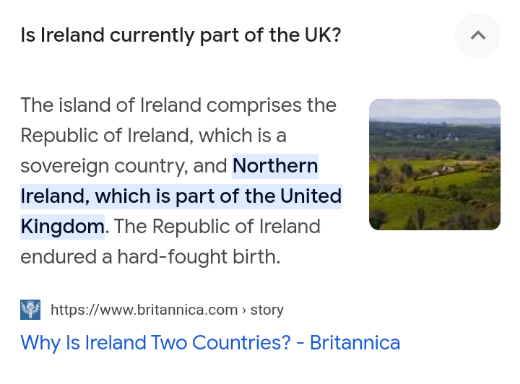according to a site called democracymatrix there are 35 countries more democratic than the us
the countries
- Denmark
- Norway
- Finland
- Sweden
- Germany
- Switzerland
- Netherlands
- New Zealand
- Belgium
- Costa Rica
- Spain
- Luxembourg
- Australia
- Estonia
- Iceland
- Ireland
- United Kingdom
- Austria
- France
- South Korea
- Lithuania
- Italy
- Portugal
- Canada
- Japan
- Taiwan
- Uruguay
- Cyprus
- Chile
- Slovakia
- Greece
- Czech Republic
- Latvia
- Barbados
- Israel


Here’s the criteria that the score is build on.
From a quick glance, I’d say US is majorly lacking in:
- Equal opportunity to participate, vote: from felons bring denied voting rights to gerrymandering to Wisconsin votes being worth 4 times as much as California votes in presidential elections die to the EC, there’s a lot of fundamental issues here
- Independence of the judiciary: the supreme court is not independent, and presidential pardons are a mockery of any justice system

Looking at the list, less a catch more a difference of ethos. Higher taxes for better public services and more even wealth distribution for social cohesion.
Many are less diverse than the USA, which brings pros and cons too.

Why should there be a catch?

Democracy in the US hasn’t been in a worse state in a very long time. There’s not much of a trick to having a stronger democracy than that…

That list seems mostly right, however…
The UK, France and Spain ARE NOT working democracies.
They can be considered “functioning” goverments to a degree, (and great economies no doubt).
But those 3 countries have deep socio-political issues that their goverments should attent with outmost urgency.
I don’t think i should describe the situation in France, as it has been spoken quite frequently in recent months.
In the case of UK and Spain, large fractions of their populations (Ireland, Scotland and Cataluña) do not feel a partriotic sentiment towards their country as a whole, but rather the region they live in, and consider that said region should be divided into an independent nation.
Before you dive into the negative aspects (and possible concequences) of such a division, let me remind you of the current conflict between Russia and Ucraine. In wich, Russia (or more accurately the Russian goverment) wants to claim Ucraine back as part of their territory despite most people in both countries being against that decision (and even more so about the idea of a war to resolve said conflict).
Back to the UK and Spain, inside those countries, elections have been held to decide if their regions should split and be independent. However, said elections weren’t quite “fair” as most people in the regions that wanted to be independent did vote on favor of independence, however it was the mayority of the countries’ populations (England and the rest of Spain), that voted to keep things as they are.
AKA People that don’t live (and probably don’t even interact with said regions) took the decision FOR THEM.
This is specially frustrating in the case of Cataluña because they speak AN ENTIRELY DIFFERENT LANGUAGE from the rest of Spain.
So in conclusion, i believe that for those 3 countries to be considered “working democracies” their goverments should focus on the true needs of their people, rather than deciding matters on economic factors.

In the case of UK and Spain, large fractions of their populations (Ireland, Scotland and Cataluña) do not feel a partriotic sentiment towards their country as a whole
Uh, you know Ireland hasn’t been part of the UK since 1922, right?


Well yes, but actually no.

Northern Ireland is not Ireland.

Then why is it named “Ireland”?

It’s named Northern Ireland.


Speaking about Ireland, you guys should totally watch this movie. It literally speaks about how things are going nowadays.

I literally live here.

Back to the UK and Spain, inside those countries, elections have been held to decide if their regions should split and be independent. However, said elections weren’t quite “fair” as most people in the regions that wanted to be independent did vote on favor of independence, however it was the mayority of the countries’ populations (England and the rest of Spain), that voted to keep things as they are.
Which votes are you referring to? Speaking for the UK, only the people of Scotland got a vote on their independence.

Warning to non-Europeans: This is fringe separatist scaremongering.


The Confederacy of Independent Systems entered the chat

Please back up what you’ve said here. There was a referendum on Welsh devolution, which only people in Wales voted for. There was a referendum on Scottish independence, which only people in Scotland voted for. Afaik there has never been a vote in Northern Ireland on independence / rejoining Ireland.
The vote on Catalán independence was held by the Catalán government, voted on only in Catalonia, Spain and it’s validity was rejected by the Spanish government. And Catalonia is not the only region of Spain to have its own language, and it’s very common for multiple languages to be spoken within a country, I’m not really sure what the relevance of that is here.

I mean, Galicia, País Vasco, Valencia, Baleares, Asturias… also have different languages. There’s plenty of regional languages in Spain. https://en.m.wikipedia.org/wiki/Languages_of_Spain
- ∟⊔⊤∦∣≶ ( @luthis@lemmy.nz ) 8•11 months ago
Speaking for NZ, while we do have things like:
Cheap or free healthcare
Roads in good condition
Low corruption/Limited power
Excellent conservation
Great public services
High level of safety
Very strong employment laws
Very low exploitation
Very open press
Free speech
Almost nearly adequate climate policies
We are still stuck with a lot of people who have the red vs blue mindset. People often vote for the party that is most likely to stop the party they don’t want getting in to power.
We have MMP here, which is of course the best system, we have political parties across the spectrum so that the largest amount of people have representation. But goddam it’s always the same 2 in majority power.
There’s delay in progressive change, eg decriminalizing weed, providing better health services.
When the wrong party is in (team blue) they focus on the wrong things ie building even more roads instead of improving public transport etc.
When the less wrong party is in (team red) they focus on appearing to do things that we care about but do a bad job.
It’s difficult to nail down general specifics but I think you get the idea.

The catch is that more democracy is not guaranteed to result in better government. But less democracy has way worse side effects.
With a few exceptions, I’d rather be a random citizen in any of the countries on your list than in the US.

What is this score based on? I had a quick skim of their site but my eyes kinda glazed over, polsci isn’t my background. Can someone ELI5?

Events in the UK, specifically tightening protest restrictions after Lizzy died and JK Rowling silencing critics through legal threats (just so you know, Trump wanted the US’s libel laws to be more like the UK’s but it never happened,) solidified my opinion that the first amendment is a net good.
I would maybe put Israel below the US based on what I know (since these kind of rankings are shaky) but that’s about the only thing I genuinely think the US does best on a governmental level.

